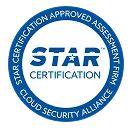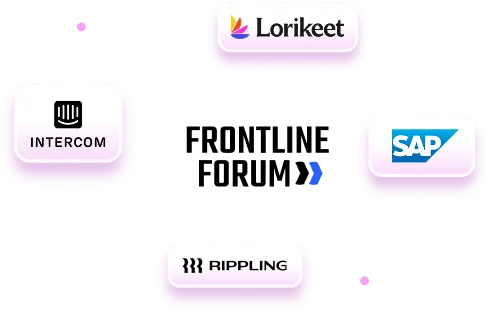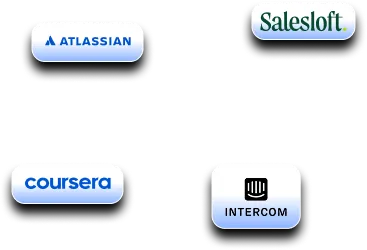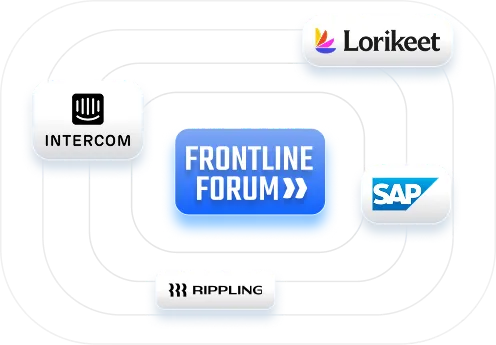Every successful services business knows that efficient financial management sits at the heart of its operations.
It's the carefully balanced combination of money inflows and outflows, ensuring bills are paid, employees receive their dues, investments are made, and a profit is realized.
Accurate and efficient management of resources and finances:
- Provides companies with a comprehensive understanding of their financial situation
- Helps in making informed decisions and planning strategies for the future
- Ensures business sustainability and better preparation for financial uncertainties
- Paves the way for potential growth and expansion opportunities
However, traditional accounting processes may not always provide sufficient data or clear insights for optimal decision-making. That's where project-based accounting can make a massive difference for businesses.
{{demo}}
What is project-based accounting?
Project-based accounting is a financial management approach that focuses on individual projects within a business rather than general company accounts. It groups revenue and costs according to each project they are associated with, enabling a more detailed understanding of project profitability. This specialized form of accounting is integral to businesses where work is typically performed on a project basis, such as construction, professional services, software development, and engineering. Despite their service variety, these businesses share a common objective: delivering projects on time and within budget while ensuring profitability. And tracking project details at the granular level is crucial for enhanced visibility and control for such businesses. This is precisely what project accounting helps them accomplish.
Why project-based accounting is important
When it comes to managing the finances of a business, project accounting plays a crucial role, especially for businesses that rely heavily on projects. Here are 3 reasons why project-based accounting might be your best fit:
Provides a clear picture of the financial health of individual projects
By tracking revenues, expenses, and profitability on a per-project basis, businesses can identify which projects are bringing in the most profit and which ones may need some adjustments. This information allows for better decision-making and resource allocation, ensuring that the company's efforts are focused on projects that generate the highest returns.
Helps with budgeting and forecasting
By closely monitoring project costs, businesses can accurately estimate future expenses and revenues, allowing for better planning and resource allocation. This, in turn, reduces the risks of overspending or underestimating profits, leading to smoother project executions and improved financial performance.
Project-based accounting promotes accountability
It allows businesses to track and allocate costs and resources to specific projects, making it easier to hold project managers and team members responsible for their actions. This transparency fosters a sense of ownership and accountability, which can lead to increased efficiency, productivity, and ultimately, project success.
In conclusion, project-based accounting is important because it provides businesses with a deeper understanding of their projects' financial performance, enables better budgeting and forecasting, and promotes accountability throughout the organization. By adopting project-based accounting practices, businesses can enhance their financial management and achieve greater success in managing their projects.
Principles of project-based accounting
Project-based accounting operates based on a few crucial principles:
1. Project costing
This involves the allocation of costs to individual projects. Everything from labor costs, raw materials, to indirect expenses are accurately and consistently assigned to the respective projects they facilitate.
2. Revenue recognition
Project-based accounting implements an approach where revenue is recognized as and when the project reaches certain milestones, rather than waiting for the completion of the whole project. This provides a more accurate picture of a project's profitability over time.
3. Project forecasting
Under this system, financial forecasts are executed for each project individually, rather than for the company as a whole, enabling more precise prediction of expenses, revenues, and ROI.
4. Resource management
Another cornerstone of project-based accounting is managing and optimizing resources allocated to specific projects, ensuring the most efficient use of a business's time, labor, and resources.
Here's a free template to help you get started with resource tracking for optimum resource management.
Difference between project-based accounting and traditional accounting practices
Traditional accounting practices typically focuses on company-wide expenses and revenues, providing a broad view on an organization's financial health but often lacking specific, project-level insight.
On the other hand, project-based accounting provides a granular view of costs, revenues, and profitability associated with individual projects. It's effectively like zooming in on each project and examining its financial performance in detail.
Where traditional accounting might only tell you that the company made a profit in the last quarter, project-based accounting could show you precisely which projects drove that profit and by how much. It could also highlight under-performing projects that need more attention, or projects that consume a disproportionate amount of resources, undermining overall profits.
Moreover, project-based accounting aligns perfectly with professional services management. By offering a project-centric financial perspective, it facilitates more accurate billing and invoicing, improves efficiency, and aids in effective resource management.
All told, project-based accounting goes beyond the surface, providing a deep, project-centered perspective of your company’s financial dynamics. Implementing this form of accounting in your operations stands to greatly enhance profitability and resource management, offering a more robust method for monitoring and controlling costs.
Advantages and benefits of implementing project-based accounting
- Project-based accounting allows for enhanced transparency and foresight regarding expenses and revenues. Owing to its unique framework, it allows you to easily track and segregate costs per individual project. That makes it possible to generate accurate business forecasts, which is a great way to strategize your financials.
- It supports revenue recognition, a key factor in professional services management. By using this method, you can correctly recognize revenue when earned and match it to the related project expenses. This approach provides a more balanced and justifiable view of your financial standing at any given time.
- It offers improved financial control by presenting a real-time snapshot of the project financial health. This allows for quicker, more informed decisions to be made when it matters, resulting in overall better project management.
- Project-based accounting offers an effective way to manage resources, making it easier to align your resources to the most profitable projects and ensuring optimal ROI.
How project-based accounting improves project profitability
Understanding the profitability of each project is a key factor in making strategic business decisions. Project-based accounting delivers detailed insights into the revenue and cost of every project individually.
Instead of relying on generalized, company-wide financial data, businesses obtain project-specific income and expenditure data that help detect profitable areas and analyze performance at the micro-level. This way, it's feasible to pinpoint which projects are generating more income and which ones need some tweaking for enhanced profitability.
|Learn more effective strategies for enhancing project profitability, increasing project margin, maximizing revenue, and boosting your revenue here.
How project-based accounting helps better resource utilization
The success of any project relies heavily on resource utilization. With the project-based accounting methodology, you can scrutinize your resource allocation more effectively.
Project-based accounting enables you to see exactly where resources are being used, how much is being spent, and how these resources are influencing the profitability of your project. By identifying the resource-draining areas, you can tweak your strategy and reallocate resources to areas where they are most valuable. This targeted approach can immensely improve overall resource management, reducing wastage of resources, and improving the bottom line.
This results not just in improved financial control and revenue recognition but also efficient resource management and greater ROI. It is a game-changer for businesses aiming for profitability and growth.
|If you are looking for a best practices guide on resource management to help you get the most out of your team and deliver projects on time, head here.
How project-based accounting can boost profitability
Project-based accounting allows companies to measure profitability by minimizing the guesswork associated with traditional business-wide forecasting and offers a clear view of income and cost per project. It allows for:
- Better revenue recognition: Project-based accounting employs a revenue recognition methodology that allows companies to record revenue exactly when it is earned. This can give a much more accurate picture of a business's financial health.
- Enhanced resource management: Project-based accounting helps track the use of resources across projects. You can identify resource drains and areas for cost optimization, ensuring that resources are adequately allocated for each project's requirements.
- Improved forecasting: With project-based accounting, you can have real-time visibility into project costs and returns, enabling more accurate and timely financial forecasting.
In project-based accounting, every expense and revenue related directly to a specific project are tracked and recorded. This means you get to accurately see how much each project is contributing to your bottomline. By doing so, it offers clues on which projects are more profitable, and where you might want to channel more resources.
Who can benefit from project-based accounting?
It is particularly effective for enterprises that operate on a project-to-project basis. This includes industries like:
- Professional services, including consultants, design agencies, and law firms
- Construction companies and real estate developers
- Tech companies producing bespoke software or applications
- Nonprofit organizations running specific programs or campaigns
- Any other business model that delivers its products or services in a project-centric way
This approach helps these businesses analyze their performance on a project level, determining how profitable each project is, whether resources are being utilized efficiently, and if there’s any scope for process enhancement.
However, project-based accounting is not restricted to project-centric businesses. Companies looking to understand how different aspects of their operations contribute to the bottom line can also incorporate project-based accounting. For instance, a retail business might use project accounting to understand the profitability of promotional campaigns or launching a new product line.
How to implement project-based accounting for your business
Transitioning to a project-based accounting approach can initially seem daunting. However, with a structured plan you can make this switch smoothly, significantly benefiting your business in the long run.
Guide to transitioning into project-based accounting
When making the transition to project-based accounting, you need to have a clear roadmap. Here are essential steps to follow:
- Identify your business goals and objectives: Set clear targets that you want to accomplish with project-based accounting, such as increased profitability, improved resource management, and accurate revenue recognition.
- Assess your current accounting system: It is crucial to understand your existing accounting system thoroughly. This knowledge will help in determining how to make a seamless transition.
- Define a transition plan: Create a detailed plan that will guide the transition from your current system to project-based accounting. This plan should include timelines, resources needed, potential risks, and mitigation strategies.
- Implement the plan: With a well-defined plan, it's time to put it into action. Implement the project-based accounting system and monitor the progress meticulously.
Remember, changes might bring challenges. Having a flexible mindset and readiness to incorporate feedback will go a long way in establishing a successful project-based accounting system.
Tips to seamlessly integrate project-based accounting to your existing systems
To avoid disruption and prevent any negative impact on the business, it's critical to integrate the new accounting system properly.
- Choose the right software solution for your needs: There are many project-based accounting software solutions that can integrate with existing business systems. Find the one that suits your business needs and has up-to-date features like professional services management and ROI forecast capabilities.
- Create a consistent workflow: It's crucial to design a workflow that aligns with your current processes. This consistency helps in minimizing the resistance to change and avoids disrupting operations.
- Trial the system: Before you fully roll out the new system, run through a trial period with it. Make sure it performs as expected and rectify any issues before going live.
- Educate team members about the change and its benefits: Change management can often be the make-or-break aspect of new system implementation. It's essential to involve your team in this change, and the best way to do this is through effective communication and training.
- Communicate the change: Keep your team informed about the upcoming changes. Explain the benefits of project-based accounting, how it will impact their roles, and the overall business.
- Provide end-to-end training to users: Provide extensive training to your team to understand and effectively use the new system. Successful implementation often hinges on how comfortable the team is with the new approach.
- Ensure continued support: Ensure ongoing support to overcome any difficulties during the transition and help your team attain proficiency with project-based accounting.
With a systematic approach, clear communication, and ample support, the transition to project-based accounting can be a game-changer, leading to improved resource utilization and enhanced profitability.
Relationship between project management and profitability measurement
Profitability measurement cannot be divorced from the processes of project management. Effective project management leads to better cost control, and therefore, increased profitability. Project managers who have direct access to financial indicators through project-based accounting can make more informed decisions concerning resource allocation, task prioritization, and more.
Moreover, there's a direct effect on ROI. The more efficiently a project is managed, the higher the return on investment. By integrating project management and project-based accounting, businesses not only measure the profitability of individual projects, but they also gain insights on how to improve project management processes for even greater profitability.
Project-based accounting is more than an accounting method; it's a profitability enhancement tool. It allows you to see the specific costs and revenues for each project, ensuring you know exactly where your money is coming from, where it's going, and more importantly, where you can maximize your profitability. It doesn't just offer a fresh approach to manage the finances of your individual projects; it also provides a comprehensive view of your overall project's health. Hence, it supports making data-driven decisions, forecasting with accuracy, and optimally allocating resources.
Remember, the objective here is not merely to switch from traditional to project-based accounting, but to maximize project profitability, thereby aiding in the growth of your business. Bring into play what you've learned from this guide, and you're on your way to better project management, improved financial control, and ultimately enhanced business profitability.
|Here's more on how PSA tools can help streamline project management, resource allocation, and time tracking, to improve project profitability.
Try Rocketlane today to maximize your project profitability
Investing in the right tools and software can make implementing project-based accounting a breeze! High-quality professional services management software like Rocketlane offer a comprehensive project management feature that allows you to easily track expenses, revenues, and measure profitability for each project. Since not all tools are created equally, when choosing your tool, make sure it has key features like time tracking, resource allocation, expense tracking, and most importantly, analytics and reporting.
Rocketlane's Professional Service Automation (PSA) capabilities offer a game-changing approach to improving project profitability. With centralized project tracking, precise billable hours recording, and efficient resource allocation, Rocketlane empowers businesses to optimize efficiency, enhance client communication, streamline billing, and maintain a clear project overview. This results in better decision-making, timely invoicing, and increased customer satisfaction, ultimately driving improved project profitability. Rocketlane is more than a project management tool; it's your key to maximizing resources, mitigating risks, and ensuring successful project delivery. Plus, it integrates seamlessly with your existing tech stack. Experience it with a demo today! It can transform your financial management practices and increase your project profitability.
{{demo}}

























.webp)